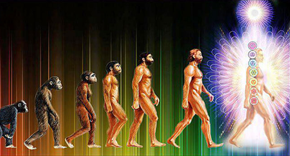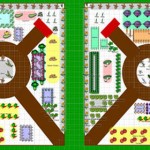by Eckhart Tolle: Addiction to thoughts…
 Your mind is an instrument, a tool. Thoughts are there to be used for a specific task, and when the task is completed, you lay them down. As it is, I would say about 80 to 90 percent of most people’s thinking is not only repetitive and useless, but because of its dysfunctional and often negative nature, much of it is also harmful. Observe your mind and you will find this to be true. It causes a serious leakage of vital energy.
Your mind is an instrument, a tool. Thoughts are there to be used for a specific task, and when the task is completed, you lay them down. As it is, I would say about 80 to 90 percent of most people’s thinking is not only repetitive and useless, but because of its dysfunctional and often negative nature, much of it is also harmful. Observe your mind and you will find this to be true. It causes a serious leakage of vital energy.
This kind of compulsive thinking is actually an addiction. What characterizes an addiction? Quite simply this: you no longer feel that you have the choice to stop. It seems stronger than you. It also gives you a false sense of pleasure, pleasure that invariably turns into pain.
Why are we addicted to thinking?
Because you are identified with it, which means that you derive your sense of self from the content and activity of your mind.
Because you believe that you would cease to be if you stopped thinking. As you grow up, you form a mental image of who you are, based on your personal and cultural conditioning. We may call this phantom self the ego. It consists of mind activity and can only be kept going through constant thinking. The term ego means different things to different people, but when I use it here it means a false self, created by unconscious identification with the mind.
To the ego, the present moment hardly exists. Only past and future are considered important. This total reversal of the truth accounts for the fact that in the ego mode the mind is so dysfunctional. It is always concerned with keeping the past alive, because without it – who are you? It constantly projects itself into the future to ensure its continued survival and to seek some kind of release or fulfillment there. It says: “One day, when this, that, or the other happens, I am going to be okay, happy, at peace.” Even when the ego seems to be concerned with the present, it is not the present that it sees: It mis-perceives it completely because it looks at it through the eyes of the past. Or it reduces the present to a means to an end, an end that always lies in the mind-projected future. Observe your mind and you’ll see that this is how it works.
The present moment holds the key to liberation. But you cannot find the present moment as long as you are your mind.
I don’t want to lose my ability to analyze and discriminate. I wouldn’t mind learning to think more clearly, in a more focused way, but I don’t want to lose my mind. The gift of thought is the most precious thing we have. Without it, we would just be another species of animal.
The predominance of mind is no more than a stage in the evolution of consciousness. We need to go on to the next stage now as a matter of urgency; otherwise, we will be destroyed by the mind, which has grown into a monster. I will talk about this in more detail later. Thinking and consciousness are not synonymous. Thinking is only a small aspect of consciousness. Thought cannot exist without consciousness, but consciousness does not need thought.
Enlightenment means rising above thought, not falling back to a level below thought, the level of an animal or a plant. In the enlightened state, you still use your thinking mind when needed, but in a much more focused and effective way than before. You use it mostly for practical purposes, but you are free of the involuntary internal dialogue, and there is inner stillness. When you do use your mind, and particularly when a creative solution is needed, you oscillate every few minutes or so between thought and stillness, between mind and no-mind. No-mind is consciousness without thought. Only in that way is it possible to think creatively, because only in that way does thought have any real power. Thought alone, when it is no longer connected with the much vaster realm of consciousness, quickly becomes barren, insane, destructive.
The mind is essentially a survival machine. Attack and defense against other minds, gathering, storing, and analyzing information – this is what it is good at, but it is not at all creative. All true artists, whether they know it or not, create from a place of no-mind, from inner stillness. The mind then gives form to the creative impulse or insight. Even the great scientists have reported that their creative breakthroughs came at a time of mental quietude. The surprising result of a nation-wide inquiry among America’s most eminent mathematicians, including Einstein, to find out their working methods, was that thinking “plays only a subordinate part in the brief, decisive phase of the creative act itself.”1 So I would say that the simple reason why the majority of scientists are not creative is not because they don’t know how to think but because they don’t know how to stop thinking!
It wasn’t through the mind, through thinking, that the miracle that is life on earth or your body were created and are being sustained. There is clearly an intelligence at work that is far greater than the mind. How can a single human cell measuring 1/1,000 of an inch across contain instructions within its DNA that would fill 1,000 books of 600 pages each? The more we learn about the workings of the body, the more we realize just how vast is the intelligence at work within it and how little we know. When the mind reconnects with that, it becomes a most wonderful tool. It then serves something greater than itself.









































